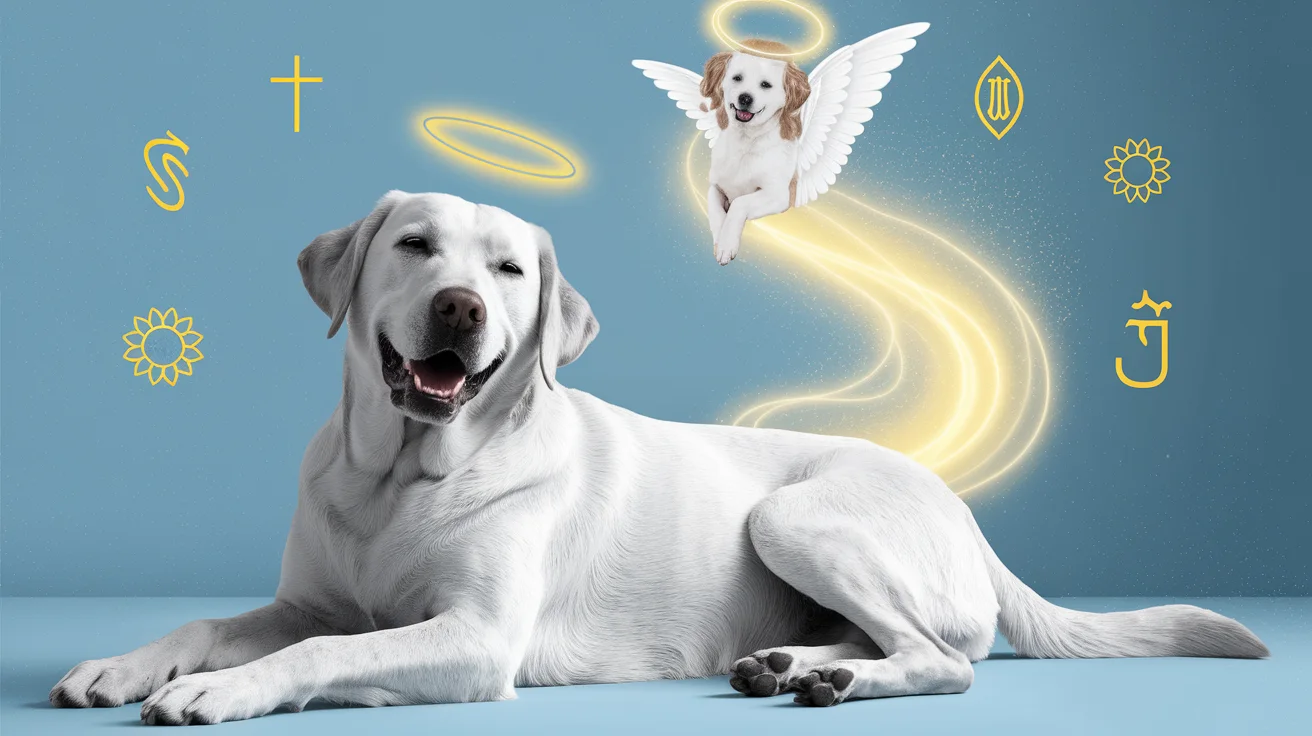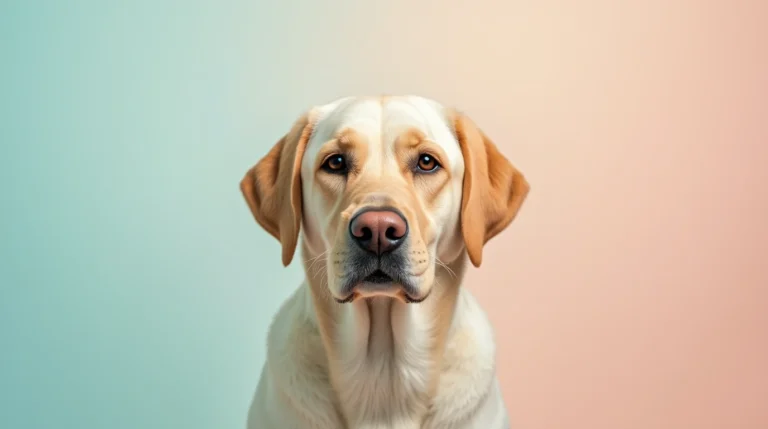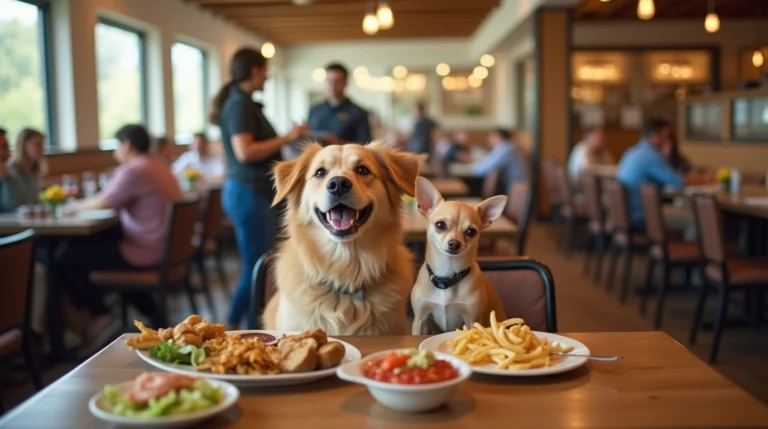Wondering do dogs go to heaven? Explore three comforting perspectives on pet afterlife, religious views, and the eternal nature of the human-dog bond.
The bond between humans and their canine companions often transcends ordinary pet relationships. Dogs become family members, confidants, and sources of unconditional love. When we lose these precious companions, the question do dogs go to heaven? naturally arises from our grief and hope. This profound question has been contemplated across cultures, religions, and throughout human history. Whether you’ve recently lost a beloved pet or are simply curious about what various belief systems teach about the afterlife of our four-legged friends, this article explores three comforting perspectives that may bring solace during difficult times of loss.

The question of whether dogs go to heaven isn’t merely theological—it touches on our understanding of consciousness, souls, and the nature of love itself. As we explore different viewpoints, remember that faith and personal belief play significant roles in how we process grief and find meaning in our relationships with our animal companions. Let’s embark on this thoughtful journey through religious traditions, philosophical ideas, and personal reflections that might help answer the enduring question: do dogs go to heaven?
Table of Contents
Why We Wonder if Dogs Go to Heaven
Before diving into specific comforting thoughts, it’s important to understand why this question holds such emotional weight. The query “do dogs go to heaven?” often emerges from several deeply human experiences:
The Depth of the Human-Canine Bond
The relationship between humans and dogs spans over 15,000 years, representing one of the oldest and most successful interspecies partnerships in history. Modern research confirms what dog owners intuitively understand—our connection with dogs operates on profound neurobiological and emotional levels:
- Studies show mutual oxytocin release when dogs and their owners gaze at each other, the same bonding hormone released between parents and infants
- Dogs can read human facial expressions and emotional states with remarkable accuracy
- MRI studies reveal dogs process voices and recognize words similarly to humans
- Many dogs demonstrate apparent grief when separated from their human companions
These scientific findings validate what pet parents feel—the bond is real, measurable, and biologically significant. When such a bond is severed through death, the emotional impact often parallels losing a human family member.
Confronting Mortality Through Pet Loss
For many people, especially children, the death of a pet represents their first significant encounter with mortality. This experience naturally prompts questions about what happens after death—not just for our pets, but ultimately for ourselves. The question of whether dogs go to heaven becomes a gateway to broader existential questioning.
Pet loss specialist Dr. Wallace Sife notes that the grief process following pet death often involves spiritual questioning, regardless of one’s religious background. This questioning isn’t merely intellectual—it represents an attempt to maintain continuity in our relationship with the deceased pet.
The Innocence Factor
Another reason we particularly wonder about dogs in the afterlife concerns their perceived innocence. Unlike humans with complex moral awareness, dogs display what many consider a pure, uncomplicated goodness. This perception heightens our sense that they deserve eternal reward or continuation.
As theologian C.S. Lewis wrote in his explorations of animal afterlife: “The tame animal is in the deepest sense the only ‘natural’ animal… the one we see as it was meant to be.” This perspective suggests that dogs, in their devotion and loyalty, reflect something fundamentally good that seems worthy of divine recognition.
With this background understanding of why the question matters so deeply, let’s explore three perspectives that many find comforting when contemplating whether dogs go to heaven.

Religious Traditions and Sacred Texts Offer Hope
Many major world religions provide frameworks that allow for the possibility of animals—including our beloved dogs—having a place in the afterlife. While interpretations vary widely even within single traditions, these perspectives offer comfort to many grieving pet owners.
Christianity and Biblical Perspectives
The question “do dogs go to heaven?” has varying answers within Christian thought. While the Bible doesn’t explicitly state “dogs go to heaven,” several passages suggest the inclusion of animals in God’s redemptive plan:
- Isaiah 11:6-9 describes a peaceful kingdom where “the wolf will live with the lamb” and “a little child will lead them”
- Romans 8:19-22 speaks of creation “groaning” and awaiting redemption alongside humanity
- Revelation 5:13 depicts “every creature in heaven and on earth” praising God
The 13th-century Catholic theologian Thomas Aquinas argued that animals, lacking rational souls, wouldn’t enter heaven. However, many modern Christian thinkers, including Pope John Paul II, suggested that animals might indeed have a place in God’s eternal plan.
Pope Francis more recently stated, “Paradise is open to all God’s creatures,” further suggesting openness to animal afterlife within contemporary Catholic thought.
Protestant denominations vary widely, with some maintaining traditional views that heaven is exclusively for humans, while others embrace more inclusive interpretations. Influential Protestant theologian N.T. Wright suggests that redemption encompasses the entire created order, not just humanity.
Islamic Teachings About Animals
Islamic traditions contain several elements suggesting animals have spiritual significance extending beyond earthly life:
- The Quran mentions animals forming communities like humans (Surah 6:38)
- Several hadith (sayings of Muhammad) describe animals receiving justice in the afterlife
- Islamic scholar Ibn al-Qayyim wrote that animals would be resurrected on Judgment Day
While classical Islamic theology doesn’t typically place animals in Paradise permanently, these teachings nonetheless affirm animals’ spiritual significance and suggest some form of continuity after death.
Eastern Religious Perspectives
Eastern religious traditions often provide frameworks more explicitly inclusive of animals in spiritual continuity:
Buddhism:
- The cycle of rebirth (samsara) includes animals as sentient beings
- Animals are seen as possessing Buddha-nature, the potential for enlightenment
- Many Buddhist traditions practice animal blessing ceremonies and funeral rites
Hinduism:
- Animals are considered souls in different stages of reincarnation
- Many Hindu deities have animal companions or manifestations
- The sacred text Bhagavad Gita suggests all living beings contain divine essence
Jainism:
- Perhaps the most animal-inclusive major religion
- Teaching of ahimsa (non-violence) extends to all living creatures
- Animals are considered souls evolving toward liberation
For adherents of these traditions, the question isn’t so much whether dogs go to heaven but understanding their place in the continuum of spiritual existence and reincarnation.
Indigenous and Nature-Based Spiritual Traditions
Many indigenous spiritual traditions worldwide maintain beliefs about animal spirits and afterlife that are profoundly inclusive:
- Native American traditions often include beliefs about animal spirit guides that transcend physical death
- Many shamanic traditions teach that animals and humans share spiritual essence
- Australian Aboriginal Dreaming stories frequently depict animal spirits as eternal
These traditions typically don’t separate humans and animals hierarchically in spiritual terms, instead seeing interconnectedness and shared spiritual destiny.
Modern Religious Interpretations
Contemporary religious thinkers across traditions have increasingly embraced more inclusive views regarding animal afterlife. Factors influencing this shift include:
- Growing recognition of animal consciousness and emotional complexity
- Ecological awareness of interconnectedness between species
- Evolving interpretations of sacred texts emphasizing divine love for all creation
For example, prominent contemporary theologian Matthew Fox argues that traditional religious perspectives have often unduly limited God’s compassion based on human-centered thinking. He suggests that divine love logically extends to all beings capable of giving and receiving love—certainly including dogs.
| Religious Tradition | Traditional View on Animals in Afterlife | Contemporary Interpretations |
| Christianity | Mixed views; historically often excluded | Increasingly inclusive interpretations based on God’s love for all creation |
| Islam | Animals receive justice but not typically included in Paradise | Growing emphasis on animal welfare and spiritual significance |
| Judaism | Limited traditional discussion; focus on this-worldly treatment | Contemporary Jewish thought more open to animal spiritual continuity |
| Buddhism | Animals included in rebirth cycle | Emphasis on compassion for all sentient beings |
| Hinduism | Animals as souls in reincarnation cycle | Recognition of divine essence in all creatures |
| Indigenous Traditions | Typically inclusive of animal spirits | Continued affirmation of animal spiritual significance |
For many believers wrestling with the question “do dogs go to heaven?”, these religious perspectives offer frameworks for hope. Whether through traditional teachings or contemporary interpretations, many find comfort in religious traditions that make space for the spiritual significance of our animal companions.
Love Creates Spiritual Bonds That Transcend Death
Beyond formal religious frameworks, many find comfort in the idea that love itself creates connections that transcend physical death. This perspective focuses less on theological doctrines and more on the spiritual nature of the bonds we form with our dogs.
The Nature of Love as a Spiritual Force
Throughout history, philosophers and spiritual teachers have suggested that love represents more than mere emotion—it constitutes a fundamental spiritual reality that connects beings across dimensions. This view offers particular comfort regarding the question “do dogs go to heaven?”
Consider these perspectives:
- Spiritual interconnection: Many spiritual traditions teach that love creates energetic or spiritual connections that continue beyond physical separation.
- Love as divine essence: Various philosophers and theologians suggest that genuine love participates in divine reality, making loving relationships eternal in essence.
- Transcendent bonds: The unique loving relationship between humans and dogs might create spiritual connections not limited by physical death.
Theologian and philosopher Pierre Teilhard de Chardin expressed this concept eloquently: “Love is the most universal, the most tremendous and the most mysterious of cosmic forces.” From this perspective, the love between a person and their dog creates something spiritually real that doesn’t simply disappear when physical bodies fail.
Evidence of Continuing Bonds
While scientifically challenging to validate, countless pet owners report experiences suggesting some form of continued connection with deceased pets:
- Sensing their pet’s presence after death
- Dreams featuring deceased pets that feel unusually vivid or meaningful
- Synchronistic events that seem connected to the departed animal
- Intuitive “communications” or feelings of their pet’s continued existence
Grief counselor Kenneth Doka introduced the concept of “continuing bonds” in human grief psychology—the idea that healthy grief often involves transforming rather than severing the relationship with the deceased. Many pet loss specialists now apply this concept to human-animal bonds as well.
Dr. Betty J. Carmack, author of “Grieving the Death of a Pet,” notes that approximately 60% of bereaved pet owners report sensing their pets’ presence after death. While scientific explanation for such experiences remains elusive, their prevalence suggests they meet genuine psychological and spiritual needs.
The Intuitive Knowledge of Children
Children often demonstrate remarkable intuitive clarity regarding pet afterlife. Child psychologists note that children frequently:
- Express spontaneous beliefs about deceased pets watching over them
- Draw pictures of pets in heaven or spiritual settings
- Report dreams or visions of deceased pets in happy states
- Express certainty about eventual reunion with beloved animals
Child psychologist Robert Coles documented numerous cases of children expressing sophisticated spiritual concepts regarding deceased pets, often independent of formal religious teaching. These natural, intuitive responses suggest something deeply human in our sense that loving bonds continue beyond death.
As one 7-year-old told researchers studying children’s concepts of pet death: “My dog isn’t gone forever. He’s just gone from here. I’ll see him again because love doesn’t just disappear.”
Creating Spiritual Legacy Through Memory
Whether or not one believes in literal afterlife, our dogs undeniably live on through the ways they change us and the memories we preserve:
- Character traits we develop through loving them (patience, compassion, playfulness)
- Lessons learned through caring for another being
- Stories and memories shared with others
- Ongoing influence on our values and choices
In this way, our dogs create spiritual legacies that continue influencing the world long after their physical presence ends. This perspective offers comfort by recognizing that something essential about our beloved companions genuinely does continue.
The Rainbow Bridge Concept
The popular “Rainbow Bridge” poem and concept has provided comfort to millions of grieving pet owners. While not tied to specific religious traditions, this modern spiritual metaphor describes a paradise-like setting where deceased pets await eventual reunion with their human companions.
The concept has resonated so deeply that it’s become a cross-cultural touchstone, referenced in pet loss support groups across religious boundaries. Its popularity speaks to a widespread intuitive sense that the loving bonds we form with our animal companions have spiritual significance that extends beyond death.
For many contemplating do dogs go to heaven?, this perspective offers comfort by focusing not on abstract theological questions but on the spiritual reality of love itself. As philosopher Martin Buber suggested, genuine I-Thou” relationships—which certainly characterize many human-dog bonds—participate in the eternal.
The Nature of Dogs Reflects Something Divine
A third comforting perspective focuses on qualities inherent in dogs themselves that seem to reflect something transcendent or divine. This view suggests that the nature of dogs—their capacity for unconditional love, forgiveness, joy, and presence—represents spiritual qualities that logically belong in any conception of heaven or ultimate reality.
Dogs as Teachers of Divine Qualities
Many spiritual traditions emphasize virtues like unconditional love, forgiveness, presence, and joy as divine attributes or spiritual goals. Interestingly, these qualities often come naturally to dogs:
- Unconditional love: Dogs demonstrate remarkable acceptance regardless of human flaws
- Forgiveness: Dogs show an unparalleled capacity to forgive human mistakes
- Present-moment awareness: Dogs live fully in the now, a state many spiritual traditions identify as enlightened
- Joy in simple things: Dogs find delight in everyday experiences, modeling gratitude
Spiritual teacher Eckhart Tolle notes: “I have lived with many Zen masters, all of them cats.” Similarly, many find that dogs naturally embody spiritual qualities humans often struggle to achieve.
This perspective suggests that if heaven or ultimate reality includes these divine qualities, beings who naturally embody them—like dogs—logically belong there. As philosopher Alfred North Whitehead suggested, divine reality preserves and transforms all valuable experience, which would certainly include the love and joy dogs both experience and inspire.
Dogs as Reflections of Divine Love
Many theological traditions describe God or ultimate reality primarily in terms of love. From this perspective, dogs can be understood as creatures who particularly reflect this divine attribute:
- Their capacity to love despite human imperfection mirrors concepts of divine grace
- Their ability to forge bonds across species boundaries suggests love’s transcendent nature
- Their loyalty and devotion reflect qualities often attributed to divine love
Christian theologian Jay McDaniel suggests: “If God is love, then whatever participates in love participates in God.” This perspective suggests dogs, through their remarkable capacity for love, participate in divine reality in ways that logically extend beyond temporary physical existence.
The Moral and Spiritual Intelligence of Dogs
Growing scientific evidence reveals that dogs possess more complex moral and emotional capacities than previously recognized:
- Studies demonstrate dogs’ sense of fairness and justice
- Research confirms dogs’ ability to experience empathy and compassion
- Dogs show altruistic behaviors, sometimes at personal cost
- Dogs display moral emotions like guilt, shame, and pride
These findings challenge traditional views that restricted spiritual significance to humans based on rationality or moral agency. If spiritual significance derives from capacities for love, empathy, and moral emotion rather than abstract reasoning, dogs clearly qualify as spiritually significant beings.
Cultural Recognition of Dogs’ Spiritual Significance
Throughout history, various cultures have recognized dogs’ spiritual significance:
- Ancient Egyptians included dogs in afterlife conceptions and mummified beloved pets
- In Norse mythology, dogs guarded the paths to the afterlife
- Native American traditions often include dogs as spiritual guides or messengers
- In Zoroastrianism, dogs were considered especially pure and spiritually significant creatures
These cross-cultural patterns suggest something universally recognized about dogs’ spiritual nature—an intuition that transcends specific religious frameworks.
| Culture/Tradition | View of Dogs’ Spiritual Significance |
| Ancient Egyptian | Dogs associated with Anubis; included in afterlife |
| Greek/Roman | Dogs associated with Hecate; guardians of thresholds between worlds |
| Norse | Dog Garmr guards entrance to the underworld |
| Mesoamerican | Dogs guide souls through the underworld |
| Native American (various) | Dogs as spiritual messengers and guides |
| Zoroastrian | Dogs viewed as especially pure creatures with spiritual powers |
| Celtic | Dogs associated with healing and the otherworld |
This widespread recognition suggests that humans across cultures and times have perceived something spiritually significant in dogs—something that logically extends beyond merely temporal existence.
A Matter of Divine Justice and Love
For many theologians and philosophers, the question ultimately comes down to the nature of divine justice and love. If God or ultimate reality is characterized by perfect love and justice, what happens to dogs after death?
Theologian John Hick suggests that any coherent concept of divine goodness must include care for all sentient beings. Similarly, process theologian Charles Hartshorne argued that divine perfection logically entails perfect response to all experiences, including those of animals.
From this perspective, the question isn’t whether divine love would include dogs, but how we could possibly conceive of divine love that wouldn’t. As contemporary theologian Elizabeth A. Johnson puts it: “The Creator Spirit’s care for each creature in its uniqueness and interrelation with others is unimaginably profound.”
For many contemplating whether dogs go to heaven, this perspective offers perhaps the most profound comfort—the sense that the divine qualities we glimpse in our relationships with dogs reflect something fundamentally true about ultimate reality itself.
Practical Ways to Honor Your Dog’s Memory and Spiritual Legacy
While contemplating whether dogs go to heaven provides theological comfort, many also find solace in practical actions that honor their pet’s memory and spiritual legacy. Consider these meaningful approaches:
Creating Memorials and Rituals
- Hold a memorial service or ceremony honoring your dog’s life
- Create a physical memorial like a garden stone, tree planting, or dedicated bench
- Establish a yearly ritual on your dog’s birthday or anniversary
- Make a memory book or digital photo collection
- Commission a portrait or piece of artwork featuring your beloved pet
Continuing Your Dog’s Legacy Through Service
- Volunteer at animal shelters or rescue organizations
- Donate to canine health research or welfare organizations
- Foster dogs awaiting permanent homes
- Advocate for animal welfare legislation
- Create a scholarship or fund in your dog’s name to help other animals
Finding Healing Through Expression
- Write letters or poems to your deceased pet
- Join pet loss support groups to share memories and feelings
- Create art inspired by your relationship with your dog
- Start a blog or journal about your grief journey and healing process
- Share stories about your dog with understanding friends and family
Spiritual Practices for Connection
- Meditation focusing on gratitude for your time together
- Prayer for your dog’s spiritual well-being if aligned with your beliefs
- Creating a small altar or sacred space with your dog’s photo and meaningful items
- Spending time in nature locations your dog enjoyed
- Lighting candles on significant anniversaries
When to Consider Adding Another Dog to Your Life
While no dog can replace the one you’ve lost, many eventually find healing in forming new canine relationships. Consider:
- Allow adequate grieving time first—rushing rarely helps
- Recognize a new dog as a different relationship, not a replacement
- Consider your practical circumstances and readiness
- Sometimes fostering provides a gentler transition
- Listen to your intuition about timing
Remember that forming new bonds honors rather than diminishes your love for your deceased pet. Many find that hearts expand rather than divide when loving multiple dogs across a lifetime.
FAQ
Do all dogs go to heaven regardless of behavior?
Most theological perspectives that include animals in the afterlife don’t apply human moral standards to them. Unlike humans, dogs act according to their nature and training rather than abstract moral reasoning. Traditions that include dogs in afterlife concepts typically include all dogs, not just those meeting certain behavioral criteria.
Will my dog recognize me if we meet in heaven?
Religious traditions that include reunion with pets in the afterlife typically suggest that recognition and relationship continuity would be part of this reunion. The special bond formed during life is precisely what many believe continues beyond death. From perspectives emphasizing love’s transcendent nature, the connection between you and your specific dog represents something eternally significant.
What do veterinarians think about pet afterlife?
Veterinarians regularly witness the profound human-animal bond and often develop their own perspectives on pet afterlife based on these experiences. A 2018 survey of veterinary professionals found that 75% personally believed in some form of afterlife for animals. Many veterinarians report that discussing spiritual beliefs about pet afterlife can provide significant comfort to grieving clients, regardless of the veterinarian’s personal beliefs.
Do different dog breeds have different spiritual qualities?
While breed-specific spiritual qualities aren’t typically addressed in religious traditions, many pet owners observe that different breeds seem to embody different virtues or spiritual lessons. Working dogs might demonstrate purpose and dedication, while companion breeds might particularly exemplify unconditional love. However, most perspectives on dog afterlife focus on individual bonds and the inherent spiritual nature of dogs rather than breed-specific qualities.
How do I explain pet heaven to my children?
Child development experts suggest:
- Use concrete, age-appropriate language
- Be honest about your own beliefs while respecting their questions
- Utilize children’s books specifically addressing pet loss
- Allow children to express their own intuitive concepts
- Create rituals that help children process grief and maintain healthy continuing bonds
Many parents find that children often have their own surprisingly sophisticated spiritual intuitions about deceased pets that deserve respect and encouragement.
If dogs go to heaven, what about wild animals?
Religious and philosophical traditions that include domesticated animals in afterlife concepts typically extend this inclusion to wild animals as well, though the nature of their afterlife experience might differ. Traditions emphasizing the intrinsic value of all sentient life generally don’t distinguish between wild and domestic animals in terms of spiritual significance, though they might acknowledge the special significance of relationship bonds.
How long will my dog wait for me in the afterlife?
Questions about time in the afterlife challenge our ordinary understanding, as many theological traditions describe the afterlife as transcending earthly time concepts. The popular “Rainbow Bridge” concept suggests pets wait for their humans before crossing together into heaven, but more traditional religious frameworks often describe the afterlife as outside sequential time altogether, making waiting a concept that doesn’t apply in the same way.
Why We Care So Deeply
Understanding the profound nature of the human-dog relationship helps explain why the question do dogs go to heaven? carries such emotional weight. Science has illuminated remarkable aspects of this ancient partnership:
Biochemical Bonding
Research has demonstrated that human-dog interactions trigger powerful neurochemical responses:
- Mutual oxytocin release during eye contact (the same bonding hormone released between parents and infants)
- Dopamine activation in both species during positive interactions
- Reduced cortisol (stress hormone) levels in both humans and dogs during contact
- Synchronized heart rates between bonded dogs and humans
These biological mechanisms create bonds that operate at a level deeper than conscious thought, explaining the profound grief many experience when these bonds are severed by death.
Co-Evolutionary Partnership
The dog-human relationship represents a unique evolutionary story spanning at least 15,000 years:
- Dogs evolved from wolves specifically through selection for human compatibility
- Human and canine brains evolved specialized mechanisms for cross-species communication
- Dogs developed unique abilities to read human emotions and intentions
- Humans evolved heightened responsiveness to canine communication signals
This co-evolutionary history has created what anthropologists call “biocultural beings”—species whose very nature has been shaped by their relationship with another species. This helps explain why the bond feels fundamental rather than incidental.
Psychological and Social Benefits
The dog-human relationship provides profound benefits beyond companionship:
- Enhanced physical health (reduced blood pressure, increased exercise)
- Improved mental health (reduced depression and anxiety)
- Social facilitation (dogs help humans connect with other humans)
- Emotional regulation and support during difficult times
- Sense of purpose and meaning through caregiving
These tangible benefits underscore the relationship’s significance and help explain why contemplating its permanent end creates such profound distress.
Dogs as Family Members in Modern Life
Demographic and cultural shifts have elevated dogs’ roles in many contemporary families:
- Later marriage and childbearing mean dogs often serve as first children
- Increased geographic mobility creates situations where pets provide primary emotional support
- Changing living arrangements make dogs central household members
- Cultural shifts recognize animals’ emotional and cognitive complexity
These factors help explain why modern humans may be particularly invested in questions about dogs’ spiritual destiny compared to previous generations.
Understanding these scientific dimensions doesn’t diminish spiritual questions but enhances their significance by explaining why the human-dog bond runs so deep. The profound nature of this relationship makes theological questions about its ultimate meaning and continuation entirely reasonable.
Conclusion
The question do dogs go to heaven? ultimately invites personal reflection on our deepest values and beliefs. While no single answer satisfies everyone, the three comforting perspectives we’ve explored offer meaningful frameworks for finding peace:
- Religious traditions increasingly recognize animals’ spiritual significance, with many explicitly including them in afterlife concepts. Contemporary theological interpretations across traditions have become more inclusive of animals’ spiritual destiny.
- Love creates bonds that transcend physical death, whether through literal afterlife or through the ways our dogs continue influencing our lives long after their physical presence ends. The profound connection between humans and dogs suggests something spiritually significant that doesn’t simply disappear.
- Dogs embody qualities that reflect something divine or transcendent—unconditional love, forgiveness, presence, and joy. These qualities suggest dogs participate in ultimate reality in ways that logically extend beyond temporary physical existence.
Perhaps the most important comfort comes not from definitive answers but from permission to maintain hope and continuing bonds with our beloved companions. As pet loss counselor Enid Traisman advises: Trust your heart’s wisdom about your relationship with your pet. That wisdom doesn’t end with death.
Whatever your personal spiritual framework, the love shared between you and your dog represents something real and meaningful. Whether through religious faith, philosophical reflection, or simple intuition, many find peace in trusting that this love matters in the grand scheme of things—that it participates in something eternal.
As you navigate grief and questions about your own dog’s spiritual destiny, remember that love itself provides perhaps the most reliable compass. In the words attributed to St. John of the Cross: “In the evening of life, we will be judged on love alone.” By that measure, surely our beloved dogs have nothing to fear.
Call to Action
Processing grief and spiritual questions about our beloved pets is often easier with support and resources. At BlithePet blithepet, you’ll find additional articles on pet loss, memorial ideas, and ways to honor your dog’s legacy. We invite you to explore our comprehensive guides on pet grief and spirituality to find additional comfort during difficult times.
Have these perspectives brought you comfort or raised new questions? We’d love to hear your thoughts and experiences in the comments below. Sharing our stories often helps others navigating similar journeys of loss and hope.







